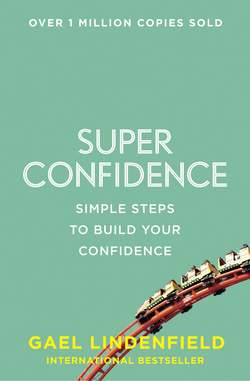Читать книгу Super Confidence: Simple Steps to Build Your Confidence - Gael Lindenfield, Gael Lindenfield - Страница 11
Can You Be Too Confident?
ОглавлениеMany people openly acknowledge to me that they are frightened of embarking on a confidence-building programme because they are afraid of becoming ‘over-confident’. They have, perhaps, been carrying around an image in their heads of certain people they have known and not liked, even though they may secretly have admired and envied their success. They give me examples of the popular ones at school, bosses at work, politicians and film stars. To prove their point, they often delight in telling me stories of how these people ended up being alone and unhappy. The moral of these tales is that, if you ‘get too big for your boots’, you will lose out in the end.
| It’s going to be fun to watch and see how long the meek can keep the earth after they inherit it. Kim Hubbard, Abe Martin’s Sayings, (1915) |
I have found that a common reason for this misunderstanding is that people are often not very clear about the differences between assertive and aggressive behaviour. We shall clarify these differences in a later chapter, but for the moment let’s remind ourselves of some real facts about confident people.
Confident people are not:
| Being confident isn’t about being ‘too big for your boots’ – it is about learning to get the boots that fit and to keep changing the boots as you get bigger! |
bossy
– even though they are the kind of people who are prepared to lead authoritatively when they know they need to do so. They are also more than willing to delegate responsibility. This is because their inner self-esteem is so firm that it is not threatened by being led by other people.
selfish
– even though they are not afraid to be seen to be looking after ‘Number One’. They are very willing and able to look after others in need whenever they can. This is because their self-care is so good that they have energy to spare and they know they can comfortably say ‘no’ or ‘no more’ when they need do so.
know-it-alls
– even though they are sure that they have adequate knowledge and skills for the tasks they undertake. They freely admit their limitations. This is because they do not wish to ‘set themselves up’ for failure and are not threatened by others having superior skills in certain areas.
loners
– even though they are comfortable spending time alone and do not need the company of others to make them happy or motivated. They have good relationships. This is because they have the skills to initiate the relationships they want and, if things go wrong, they can be openly confrontative and will willingly negotiate or walk away should they need to do so.
inevitably rich
– even though they may seem satisfied with their financial and material ‘lot’. They may live quite modestly. This is because they are not prepared to sacrifice their health and happiness to earn more than they need and they don’t need to impress others with a show of wealth.
all super-achievers
– even though they perform with excellence at whatever they do and have the potential to achieve more. They may choose to stay at the lower end of society’s ladders. They may even decide to ‘downshift’ and back-pedal in their careers. This is because they may not want to take, or continue along, the road to high achievement. They do not need to ‘prove themselves’ through work or positions of power and fame.
